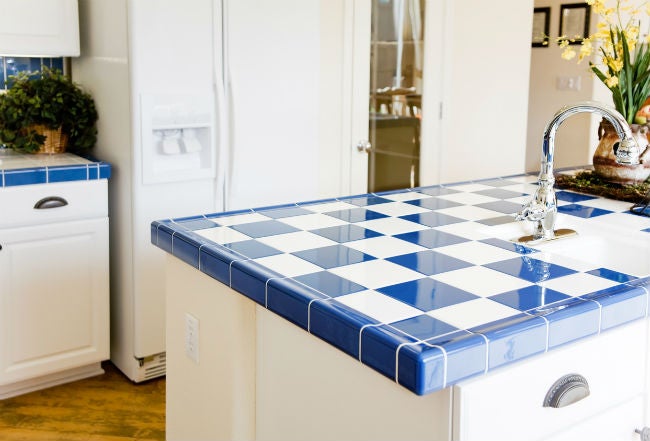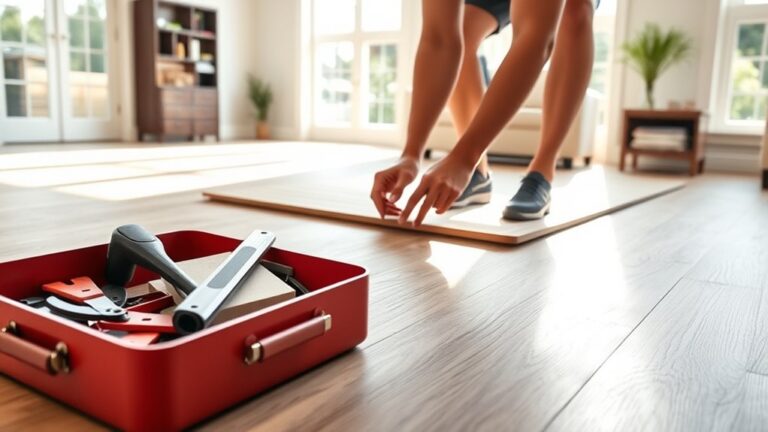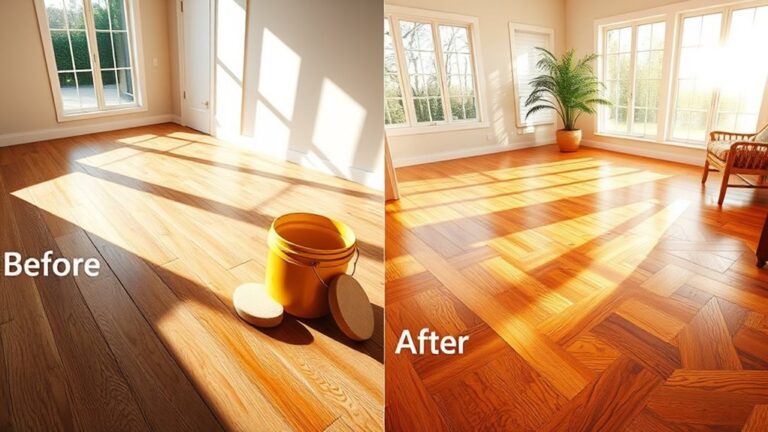Yes, you can use floor tile for kitchen countertops. Floor tiles are durable and heat resistant, making them a practical option.
Exploring innovative materials for kitchen countertops can enhance both the functionality and aesthetic of your kitchen space. Floor tiles offer a budget-friendly and resilient option for those looking to update their countertops. They come in an extensive range of designs, colors, and textures, allowing homeowners to customize their kitchen to their preferences.
As floor tiles are designed to withstand heavy foot traffic, they can endure the rigors of kitchen use, resisting stains and scratches. Their heat-resistant properties also mean hot pans won’t damage the surface. Opting for floor tile countertops can be a smart and stylish choice for any kitchen renovation project.
Introduction To Kitchen Countertops And Floor Tiles
Kitchen countertops play a crucial role in any home. They must withstand heavy use and frequent cleaning. Floor tiles offer durability and ease of maintenance, qualities essential for kitchen surfaces. These characteristics make them an interesting choice for countertop material.
Typically, countertops utilize materials like granite, marble, or laminate. Each offers different benefits like beauty or cost-effectiveness. Porcelain and ceramic floor tiles, known for their robustness and design versatility, present a compelling alternative.
| Material | Pros | Cons |
|---|---|---|
| Granite | Durable, Unique patterns | Can be expensive |
| Marble | Classic aesthetic | Requires regular sealing |
| Laminate | Cost-efficient, Easy to install | Less durable |
| Floor Tiles | Hard-wearing, Low maintenance | Grout lines may stain |
When comparing floor tiles to traditional worktops, consider cost, longevity, and style. A unique combination of visual appeal and practicality may make floor tiles the right option for some kitchens.

Benefits And Challenges Of Using Floor Tiles For Countertops
Floor tiles on countertops offer several appealing features.
These tiles are often more affordable compared to traditional countertop materials.
Plus, they come in a wide range of colors and patterns. This means plenty of design options for your kitchen.
Tiles are heat and scratch-resistant, making them practical for a kitchen environment.
Their durability stands up well to everyday kitchen tasks.
Also, cleaning tiles is generally straightforward.
On the downside, grout lines can be difficult to clean and may stain.
Tiles can crack if heavy objects fall on them.
Uneven surfaces can make some kitchen tasks tricky.
Regular maintenance is key. Sealing grout lines can prevent staining and ease cleaning.
Using the right cleaners will help you maintain tile’s look.
Consider consulting a professional to ensure tiles are installed correctly for long-term use.
Installation And Aesthetic Considerations
Paragraph for Step-by-Step Guide to Installing Floor Tiles on Countertops
Installing floor tiles on kitchen countertops requires careful planning. Begin by measuring your countertop area accurately. Then, select the right tile adhesive suited for your tiles and countertop surface. To ensure a level tile layout, use spacers between tiles. After laying the tiles, allow the adhesive to cure before moving onto grouting.
Bullet Points for Designing with Floor Tiles: Color, Texture, and Pattern
- Choose colors that complement kitchen cabinets and walls.
- Pick textures that suit your kitchen’s style, avoiding very rough textures.
- Consider patterns to add visual interest or make spaces seem larger.
Paragraph for Grouting and Sealing: Ensuring a Professional Finish
Proper grouting is crucial for a durable and clean countertop surface. Spread grout evenly, filling all gaps between tiles. Wipe away excess grout and polish tiles after drying. For long-lasting protection, apply a sealant to the grout lines, which helps prevent staining and moisture damage.

Real-life Examples And Case Studies
Many homeowners have embraced using floor tile for kitchen countertops. Success can be attributed to their durability and versatility. One homeowner reported their floor tile countertop still looks pristine even after a decade of use. Scratch and heat resistance are noted benefits.
On the downside, experts urge caution with proper installation. A common issue arises from improper sealing, leading to stains and bacterial growth. Recommended is consulting with a professional installer to avoid such pitfalls. Regular maintenance is also advised to keep the tile shining and hygienic.
| Consideration | Advice |
|---|---|
| Tile Quality | Choose high-density tiles for better durability. |
| Sealing | Seal properly to prevent dirt and bacteria. |
| Maintenance | Clean regularly with non-abrasive cleaners. |
Conclusion And Future Outlook
Floor tiles can indeed be used for kitchen countertops. This choice brings a unique aesthetic and durability. It’s important to note the difference between floor and countertop tiles in terms of resistance and porosity.
- Kitchen design trends evolve, with materials cycling in popularity.
- Tiles offer a timeless appeal and versatility.
- Recent years show an inclination towards sustainable and durable options.
Selecting the right surface for your kitchen requires careful consideration. Assess the tile’s resistance to heat and stains. Ensure your choice reflects the desired style and functional longevity. Always consult with a professional for the best outcome.

Conclusion
Selecting floor tile for kitchen countertops is a creative and durable choice. It offers a robust solution, inviting unique designs into your culinary space. Remember to prioritize compatibility, installation precision, and proper sealing. Elevate your kitchen aesthetic while ensuring functionality for a delightful cooking experience.
Dare to innovate with your countertop materials!




